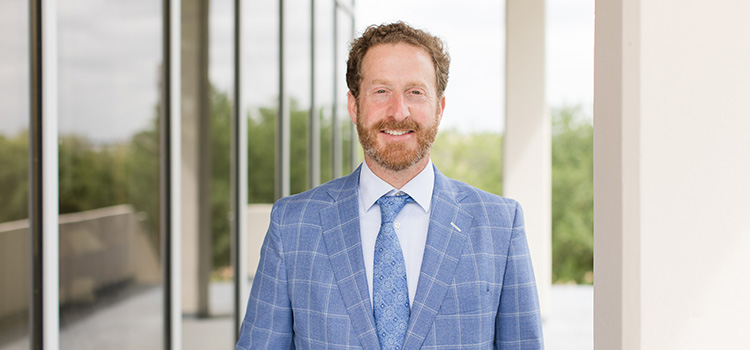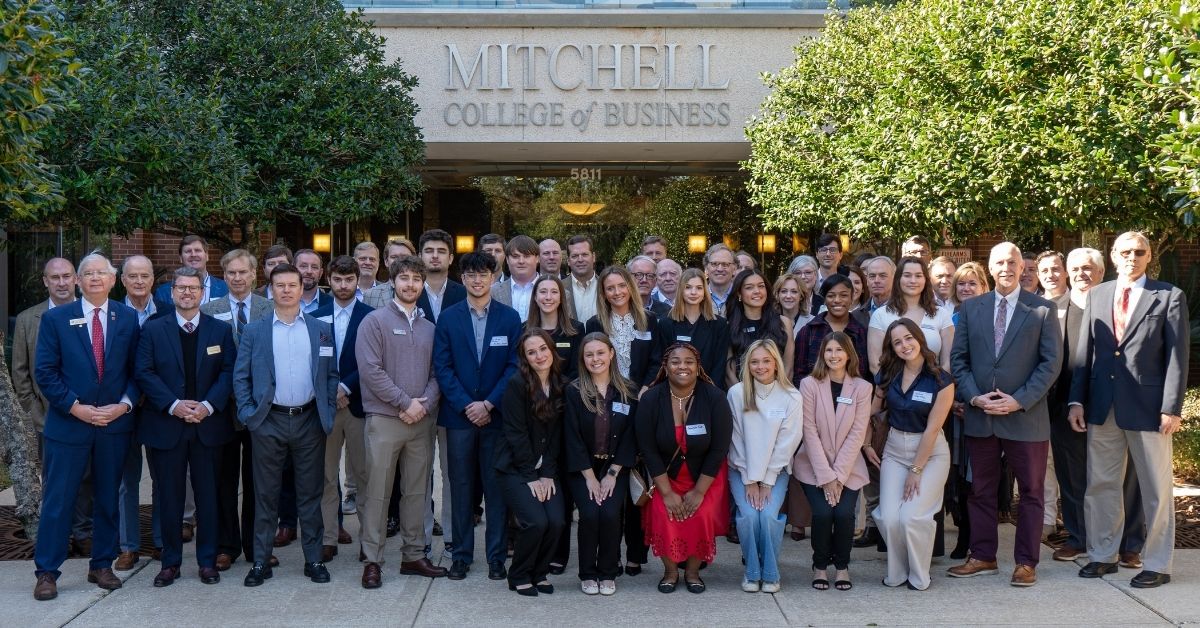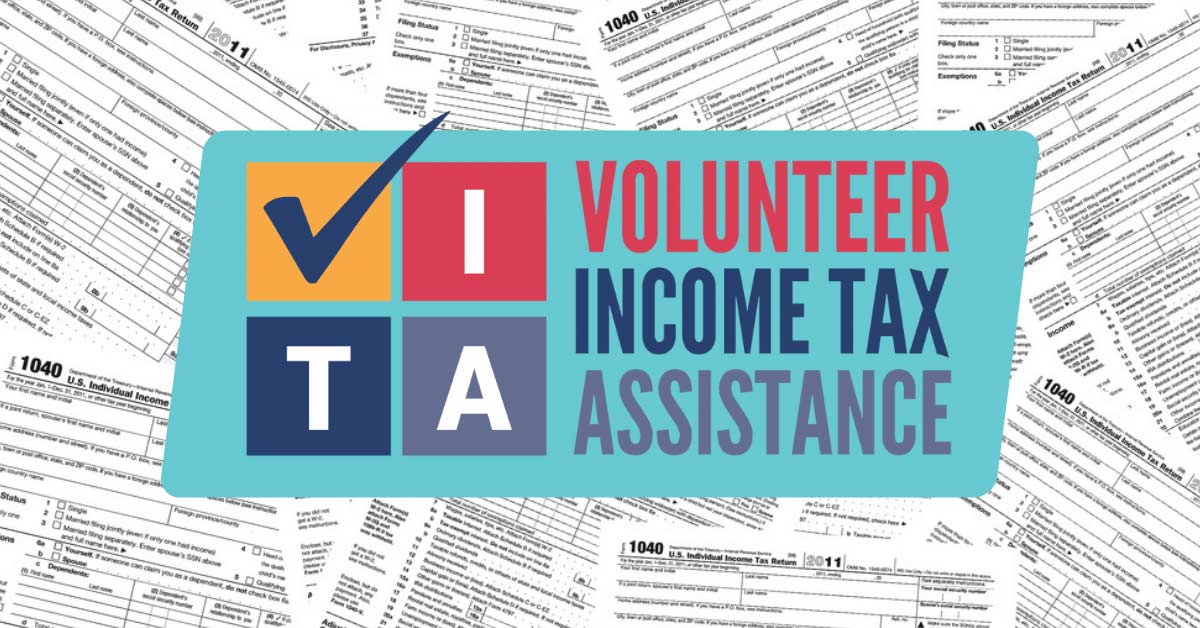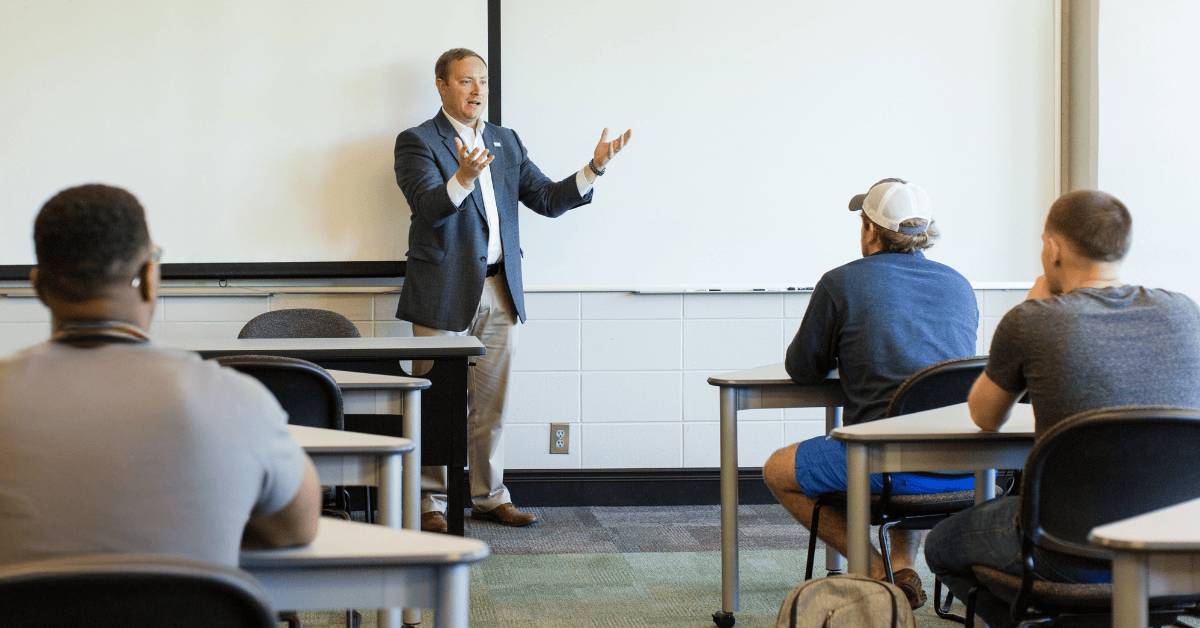The New COVID-19 Retail Landscape
Posted on June 15, 2022 by MCOB

Brent Barkin, chief executive officer of Shoe Station, recently did a follow-up interview to his 2018 Mitchell Magazine interview, “The Past, Present, and Future of Retail.” Barkin addresses the 2018 "Future of Retail" in sharing how Shoe Station is weathering COVID-19 and dealing with a future that no one expected.
Witnessing the failure of so many retail institutions during the COVID siege, to what do you contribute to Shoe Station’s “staying power” in the very competitive shoe marketplace? What did the COVID-era consumer teach Shoe Station executives?
“I think we experienced the ‘staying power’ as you call it for a few reasons. We had the resources to weather the storm, we watched out for our people, and we became as flexible as we possibly could given the time and circumstances.
First, and this goes back many years before COVID, we have always maintained our company’s resources in a responsible manner. Our expansion since 1984 has always been measured and calculated, we have rarely if ever used borrowed money to do so, and we have kept a strong reserve in the business. All of these factors allowed us to continue paying our bills and our payrolls even while our doors were closed for as long as six weeks in some cities.
Second, I think we did the right and responsible thing by closing our stores when we did. This was even before some of our state governments mandated that we close. Our opinion at the time — and continues to this day — was that doing the right thing is the right fit for our community, our employees and our business. At the same time as we closed our doors, we kept those employees willing to do so working behind the scenes, checking with the local authorities to make sure we could do so. While the stores were closed to the public, our employees — masked and socially distanced — were doing everything from straightening and re-straightening shoes to checking all of the boxes, to cleaning the stores by the most stringent standards. Our desire to do the responsible thing for our community while keeping as many employees on the payroll was the correct move.
Third, we learned to be flexible. This flexibility took place in so many forms I will only mention a few of them here. We negotiated with our real estate partners and suppliers. We adjusted hours once we were able to reopen. We initiated curbside pickup and buy online/pickup in store. We shifted our product mix and suppliers. We altered our promotional cadence and the way we marketed. In short, we questioned many of the tried-and-true practices we had been doing for so many years simply out of routine. This was in many cases the best lesson that we could have learned from COVID — that we didn’t have to do things the way we had always done them simply because that was how they had always been done.”
A Shoe Station billboard in Mobile recently promoted the “46,000 pairs of shoes” in your inventory. What does this number tell us about Shoe Station customers? What does it say about your overall retail strategy in uncertain/unsettling economic times?
“I think we have been incredibly lucky with our customers and the Mobile market. We are known for selection and the sheer amount of inventory we carry. Sometimes it can be overwhelming. During this day and time, however, of inventory shortages in the automobile, appliance and construction industries, footwear has not been immune. We have had a hard time getting our customers exactly what they are looking for, and that just typically is not the case with Shoe Station. However, because of our wealth of suppliers — 150+ by my last count — we have found resources to keep our stores not just full but full with the breadth and depth of quality brands that our customers are used to. The billboard is simply a reminder: Hey, we are still here and still have shoes! At least that was my intent.”
Successful retailers are continuous learners. What five lessons did Shoe Station learn during the pandemic that are likely to stick around for a while?
- As my father would say, “Keep your powder dry.” Have extra resources in reserve just in case. We knew this, but while we were closed for 4-6 weeks in some locations, it became obvious how important this was.
- People do matter. We stuck by our people, kept everyone employed, tightened hours but didn’t just let massive amounts of people go because it was the easy thing to do. We did the right thing, and it has paid dividends.
- Be flexible, be flexible, be flexible. You cannot simply sit on your hands and watch events unfold because you did the same thing you did last week or last year. Important during a pandemic; just as important when there is no pandemic.
- There is nothing worse than not knowing what you do not know. The last year and a half has taught me that podcasts, webinars, Zoom meetings, conferences, industry articles — all of them — have something to teach each one of us about what we know and what we have no clue about. Information is indeed power, and that power comes from a myriad of sources.
- Don’t forget about family. There is nothing like being in quarantine during a pandemic to show you how much you are missing your family and loved ones’ lives. It seems like the last 17 months have gone by in a flash, but at the same time, there are many moments I got to spend with my wife and children that I would not trade for anything.”
Business news stories are replete with worker shortage scenarios. How has Shoe Station’s people management strategy evolved to reflect the ever-changing nature of the employment pool?
“We have simply re-discovered how valuable our people are, and how if you stand by them, they will stand by you. We have benefited from significantly lower turnover than our competitors during this entire time. At the same time, we realize that we cannot simply wait around for our employees to get offers that push them to leave. We are proactively raising salaries in many situations where we recognize that the marketplace is paying people more. We have also reinforced with our managers that hiring must be a continual, around-the-clock, process that lasts all year. People who are looking for work can find work, but we need to let them know that we can be a place for them for today, five years from now, or a career if they so choose.”
If you are approached by a group of graduating seniors from the Mitchell College of Business that expressed a strong interest in starting their own retail venture, what pieces of wisdom might you share?
“I would tell them that this area — well, honestly, the world — needs more local, independent retailers. They are the lifeblood that keeps innovation and local flavor in our community. They buy things that no national chain would buy, but that the people in the area love and can’t feel and touch online.
That said, retail is not easy. The majority of people who start businesses often do not have the resources to properly fund the business, or they misunderstand their markets and competition. Your projections for the business must include resources to set up the business and stay in business for months with next to no revenue. You must have a marketing budget so that people know who you are, where you are and what you do. Don’t pick a bad location just because it is cheap. Research about as much as you possibly can before you even consider opening a business. You can use other competitors as your "influence"— copy what they do that works, ignore what doesn’t. The best business to start is one you are familiar with. If your family has been farmers for years and you grew up around farming, consider something that is related to agriculture. Don’t just open a bar because it sounds like fun.”
The Shoe Station acquisition represents another milestone in the evolution of this respected family-based retail organization. How will this latest strategic move affect the firm's presence in the marketplace, competitive posture, branding, and overall customer satisfaction?
I feel this move only benefits both organizations. Shoe Carnival has national reach; Shoe Station has tremendous regional presence in five states with the ability to grow. The resources provided by our parent company in sourcing, HR, real estate, and vendor partnerships will only allow us to flourish and bring the Shoe Station name to more and more communities. We are thrilled with the prospect of the brand my father started becoming a household name through the region.
-

Supply Chain Major Clayton Howell Claims Alabama State Title in Microsoft Excel
The Mitchell College of Business is proud to recognize Clayton Howell,...
February 19, 2026 -

Foundation for the Future: Industry Leaders Invest in Mitchell College Real Estate Program
A new era of the Mitchell College of Business real estate program bega...
February 2, 2026 -

Accounting Students Offer Free Income Tax Prep
Accounting Students in the Mitchell College of Business will be prepar...
January 29, 2026 -

Dr. Mickey Smith Receives Sam and Bonnie Rechter Research Grant
Dr. Mickey Smith, Associate Professor of Management for the Mitchell C...
January 8, 2026
